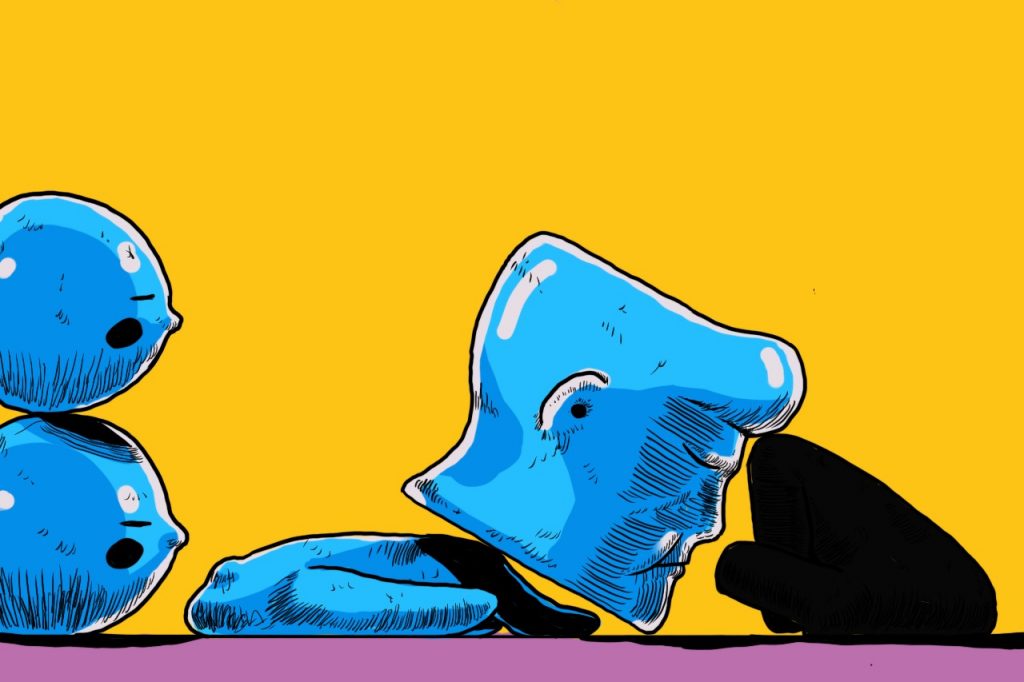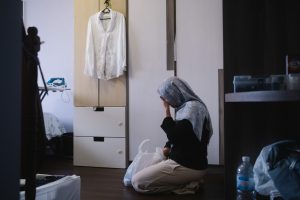This is the second in a two-part series looking at single-fatherhood as a choice in Singapore. Read the first part here.
If you were a parent, you’d know what Martin* is talking about.
Children love, laugh and cheer; they also cry, scowl, and brood.
Before becoming a parent, most would have the assurance of a long-term partner, equally committed to dealing with the messiness of starting a family. As it is however, the transition into parenthood for most can still be daunting even if you follow the standard pak-tor-ai-steady-mai-BTO Singaporean trajectory.
But what happens when you buck the usual route, and decide to go at it your own way?
For Martin*, it was choosing to leap straight from the freedom of singlehood into single-fatherhood:
“I was unable to do so many things as compared to when I was single. It’s something irreversible, I cannot unfriend my kids, not that I don’t like them, it causes me great inconveniences. I really didn’t think that it was so life-altering.”
“It was a total readjustment from a swinging bachelor’s life.”
And love is a funny thing: some people get together with the first person they ever swiped right on, while others get to be serial first-daters for the rest of their lives. Even today, with dating apps and nosy government initiatives, searching for romantic love can still easily become an exercise in despondence.
Imagine looking for a partner without our modern conveniences—it’s not surprising that as a young man in his 20s, the uncertainty Martin faced surrounding his relationship prospects drove him to seriously consider his future.
Even if his future was to be without romance, he was certain it would still be one filled with familial love.
Out of filial love for his parents, Martin wanted to give them a golden age beyond the material. As for himself, he deeply desired to nurture and build something that he could anchor his life to. Martin concedes that a romantic partner could provide all of that, but romantic partners can still abandon their other halves; the parent-child bond felt more certain and permanent to him.
I had no role model.
Martin’s undertaking to realise his dream of starting a family was a herculean one.
“I had no role model,” he says.
Inspiration was only available from abroad, where state regulations are more favourable towards creating single-parent families. Surrogacy remains prohibited in Singapore, and “adoption is not easy for males”, given that apparently, “You can’t adopt anyone who is the same ethnicity as yourself and you can’t adopt a female.”
These restrictions, coupled with Martin’s desire to be the biological father of his children, meant his only option was to source for a surrogate overseas.
Such an option isn’t cheap. In total, from the moment he linked up with the first surrogacy agency overseas until the moment he held his kids, he spent an estimated 300k SGD.
“Not adjusted for inflation,” he quips.
When he hit 35, Martin decided to put his plan into action, saving up for 3 years before he engaged his first surrogacy agency. His quest took a turn for the dramatic when he realised that bringing his kids into existence was one thing, but affording their upkeep alongside that was another. At 38, he would quit his full-time job and start a company to fund his dreams of starting a family.
For the uninitiated, the surrogacy process for single men goes roughly like this:
You undergo a health screening to ensure both you and your sperm are medically sound. You’re matched with a genetically-compatible lady, perhaps in terms of race, ethnicity, education, looks etc, who will become your egg donor.
You struggle to find a suitable surrogate overseas. You find her.
The embryos fail to implant. You try again. And again. And again.
This is heartbreak writ large.
And it would happen the first 3 times for Martin. Out of luck and almost out of pocket after 4 long years of trying, he was almost ready, at 42, to give up his quest to be a single father. If he failed again, he would consider himself burnt, and taught a lesson. It would be time to can his dream and simply enjoy the life he had left to live.
But he didn’t.
The fourth attempt with a second surrogacy agency would yield not one but two successfully implanted embryos that would become Alex* and Charlie*, the twin loves of Martin’s life.
Once the pregnancy was confirmed, he flew off to meet his surrogate. Flying to and fro, he was there every step of the way. There was always someone to handle expenses, food, and accommodation, and to keep her company during ultrasound scans.
He was extremely dedicated. And he was extremely terrified.
I was so worried that it was a con case, and there was no way to report them.
Throughout his recounting, his fear and uncertainty, resurfacing from the past, is palpable. After all, there was no way to tell if he was being scammed, and there was no guarantee his efforts would bear fruition. Until he held the babies in his arms, the anxiety would not leave his mind.
Martin was driving when he got the call, and even then he was apprehensive. He didn’t want to be on a flight, not knowing what was happening. And so only after the babies were born did he fly over.
To ensure that he would be recognised as the parent of his children, Martin had married his surrogate while she was pregnant.
A month later, when Alex and Charlie were safe in Singapore, they divorced.
After 7 long years, Martin was a single father.
The resistance of thought towards the intentional creation of single-parent families means there are little to no public resources available to support someone like Martin. The lack of discussion, much less sharing of experiences, leads one to conclude that surrogacy and single-parenthood must be immensely lonesome endeavours in Singapore.
It wasn’t love, but a service that I paid for.
Even Martin himself hasn’t quite reconciled with how he started his family.
“It wasn’t love, but a service that I paid for,” he says.

Personal struggles aside, Martin has also had to figure out how to handle the stigma that comes with surrogacy and single-parenthood.
In one instance, a close friend whom he’d thought was progressive unfriended him in real life (and on Facebook) when she found out about his intentions.
“People also get married to get a flat and divorce after, what’s the problem?” Martin argues.
Rather than trying to keep naysayers and critics in his life, he chose instead to surround himself with those who supported his decision. After the children’s first birthday, Martin loosened up about his kids and started introducing himself as a single father.
“I didn’t want to tell people at first, but it meant that I was ashamed of something.”
they’re my tribe, my village
It takes a village to raise a child. In Martin’s case, his children rallied a proud village around them: his inner circle of family and close friends.
When the kids were still young, his family stepped up and gave him “masterclasses” in childcare, easing him into a fluency with domesticity. As the kids grew older, friends were always there to support and affirm the little family.
“When you grow older, you have this few friends and that’s all you need. They’re my tribe, my village, they co-parent, they come out with me, and they help to give us suggestions about what to do.”
Yet outside of this village, choosing single-fatherhood in a society that doesn’t see it as a choice still has its own unique considerations.
For example, Alex and Charlie’s birth heritage will remain a prickly issue for the foreseeable future. The PR story given to acquaintances and the periphery of his social circles continues to be the one about Martin being a single father’s who had gotten married and divorced.
It’s “not a lie, but a half-truth” that helps to manage inquisitive eyes and offers privacy to Martin and his family.
“Not sure if the kids will hate me when they grow up, once they know,” he muses.
After a slight pause, Martin says, “I asked for it. I have to accept it.”
Now past pre-school, they’ve started to probe about their origins, curious about the absence of a mother in their lives. Having preempted this, Martin has kept in contact with the surrogate over the years, sending her pictures and updates about the kids.
In fact, he ventures, “I would be open to letting them meet and resolve things.”
“I do everything to prevent people from asking me the question in an unprotected environment. I don’t want people to ask me anymore.”
He used to avoid letting the twins go to school during Mother’s Day to stave off such questions. But recently at their new daycare, Father’s Day and Mother’s Day were combined in favour of Parents’ Day instead, much to his relief and appreciation.
Martin shares, “There was a point in time, when the older one, Alex, would run after any woman they saw and call her mama”.
His solution for now, before the kids are age-appropriate, is to tell them that they are a ‘special family’. Because children are forgetful, he repeats the message constantly to frustration. He wants them to know that even without a mother, the people around them love them.
Others without the same financial means, or the luck to have a ‘village’, will likely never be able to make the same choice.
Social support can’t be expected either; choosing to be a single-parent remains unthinkable for most Singaporeans. There’s even less that can be expected of state support.
Martin agrees, saying, “I want more support from my state.”
But the sentiment is quickly tempered by an acute awareness of how things work in Singapore.
I am a Singaporean son, I know how my state thinks.
“I am a Singaporean son, I know what my state thinks. I’ve always done things on my own. I don’t expect the state to help me. I’m now a cynic with everything being propaganda. I just want to be left alone.”
Martin’s desire to be a parent is no different from anyone else’s.
Yet the way he’s been made to feel about his choice of single-parenthood, is unjustified.
His singlehood doesn’t hamper his ability to be a father, and the obstacles that he faced (and continue to face) with his choice of single-fatherhood are more accurately attributed to a wider refusal in Singapore’s social and legal spheres to recognise the legitimacy of planned-single parenthood.
“I want to tell people not to give up the notion to. Took me seven years but I did it as a single father,” Martin says, explaining why he agreed to be interviewed in the first place.
Before we conclude our interview, I casually ask: “Can you tell me in six words or so: what does fatherhood mean to you?”

“I want to share my life with someone I’m nurturing.”
“But if you want a word, fatherhood is bliss.”
“Single fatherhood is a dream that I’m living every day. Every day when I kiss my kids goodbye, when I fetch them to school in the morning, when I see them sleeping, when they say a weird new word, when I watch them laugh. There’s a lot of love, patience, and heartache involved.”
“It’s about dealing with issues—before my kids, I was a quiet person.”
The kids amplify everything: love, disappointment, bliss.
On the way back to RICE HQ, I think about my own aspiration towards being a single father, about the changes my kids will make to my life, about the things they will amplify in my life.
I don’t know the answers; I don’t even know if I’m ready.
But something that Martin said during our conversation gives me assurance:
“If you really want to have kids, you will find a way to have them.”
Should single-parenthood be permitted in Singapore? Tell us what you think at community@ricemedia.co.






